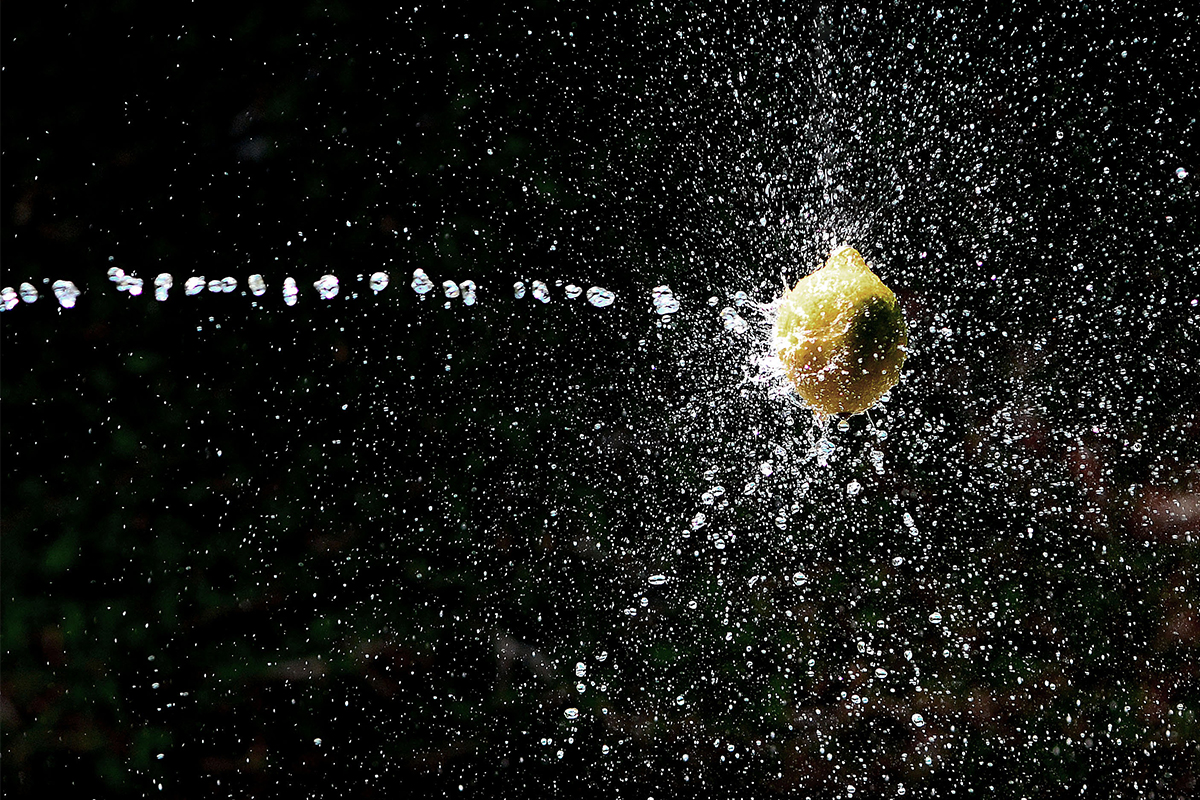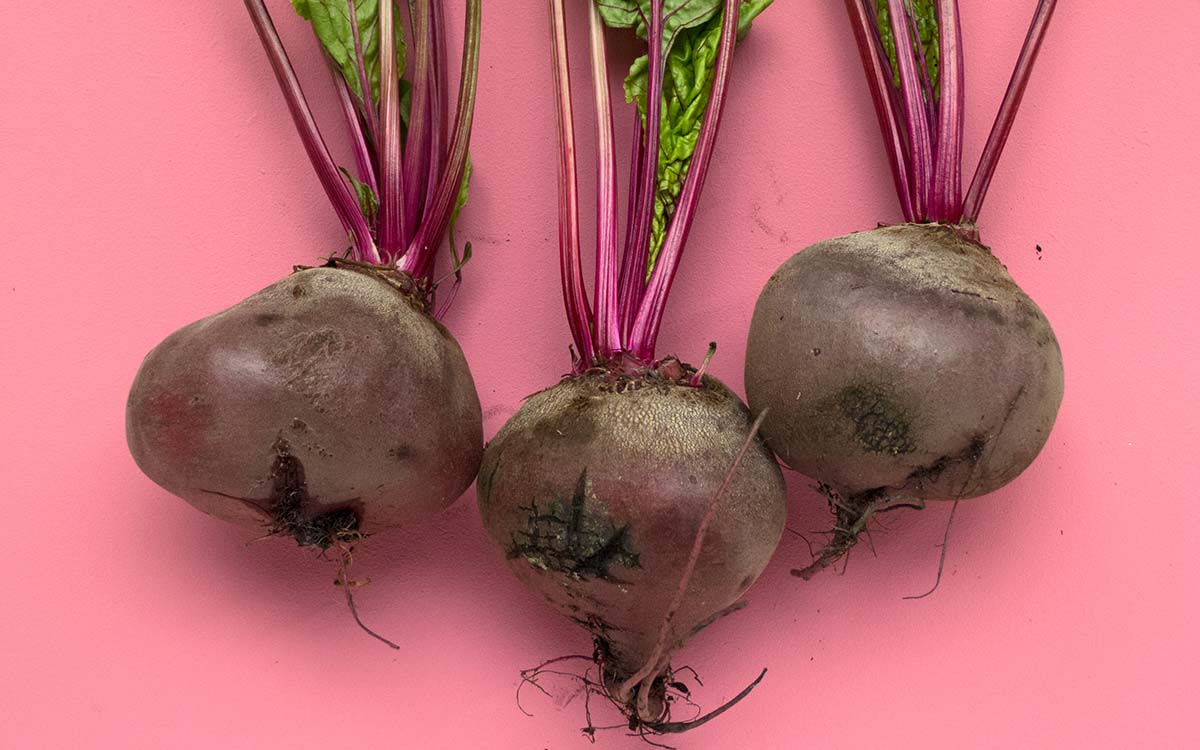On those days where I actually live up to the “healthy routine” I keep in the Notes section of my iPhone, I take in a list of liquids that could rival a cocktail menu. The regimen includes a pea protein shake, a cup of beet juice, a greens smoothie with spinach and wheatgrass, and a mug of valerian-infused tea. Each drink has a purpose; they’re meant to aid in recovery, offer energy, facilitate digestion and help me get to sleep.
Which is to say, I have a fairly low threshold when it comes to willingness to chug something in the name of wellness. If it works, why not? It’s usually a far more efficient way to cash in on nutrition. A couple years ago, JJ Redick explained how he used to labor through a plate piled high with beets each night, washing them down with water until he was bloated and bored, all in pursuit of the vegetable’s nitrates. Now, he just drinks beet juice.
A thoughtful liquid-based diet can offer some kickass benefits. It’s worth your time and money. But if a particular drink is actually going to make it into your rotation, its reputation ideally shouldn’t rely on pseudoscience and hearsay. Lately, one such potion has drifted back into the public sphere, as its biggest supporter has had trouble staying out of the news. I speak of Twitter CEO Jack Dorsey, and his infamous “salt shakes.”
Dorsey, who also helms Square, turned 44 a few months ago. Like other Silicon Valley billionaires, he’s a lot to to process. He’s got bit-player-on-Lost energy. His beard has its own Twitter account. When, with other executives, Dorsey decided to officially ban President Trump last month, he was on a retreat in French Polynesia. He’s often away — as in far away — trying to manage two of the world’s biggest companies and his own internal monologue at the same time. For his birthday in 2018, he went on a 10-day Vipassana retreat in Myanmar, where students are denied essentially everything, including eye contact with other retreaters.
It’s understandable that Dorsey’s success and scruff would engender disciples. If not an outright counterpoint, Dorsey’s way is a new-agey, soft-spoken answer to Elon Musk’s jokey, brash, libertarian playboy. But with more followers comes more responsibility (Dorsey should know that better than anyone), and the Twitter CEO’s wellness kick, now clearly more than just a midlife crisis, might be giving some people the wrong idea. His salt shakes, a morning mix of Himalayan pink salt, lemon juice and water, are a prime example.
Dorsey starts every single day by drinking one, which we know because he’s talked about the habit on tech-fitness-bro podcasts. We don’t have his official recipe, but there are some decent guesses online: 12 ounces of lukewarm water, half a teaspoon of Himalayan rock salt, lemon juice. What does it taste like? Honestly, you’ve probably had “salt juice” before. If you ever gargled salted water as a kid — to battle a cold, strep throat or a canker sore — it’s that. Drinking lemon water is also a common method for fighting infection. A salt shake is essentially just brackish lemonade; it’s generally harmless, and it might help clear your sinuses.

But is it going to do more than that? That honestly depends on what more means to you. If you want to be more like Jack Dorsey, then congratulations. You’re well on your way. But the short answer is no; drinking salt shakes/salt juice/sole water (another popular moniker) will not help you lose weight, improve bone health, “balance pH” or “detox the body.” John Fawkes, a Precision Nutrition-certified nutritional counselor, says: “There’s little-to-no wide-scale, peer-reviewed literature backing up most of the health claims behind lemon water, much less the salty lemon water Dorsey drinks.”
To be clear, there is a legitimate benefit to getting salt into the body. If you’ve got low blood pressure, or exercise frequently, your body could suffer from sodium restriction. It’s a bit counterintuitive, but water alone isn’t enough to rehydrate the body. You need sodium, too — otherwise the water will just leave your body as dilute urine. The thing is, by Dorsey’s own admission, he’s not one for exercise. He is one, however, for intermittent fasting. Dorsey infamously eats just one meal a day on weeknights: fish, chicken or steak with a salad, spinach, asparagus or Brussels sprouts. And over the weekend, he only eats on Sunday night.
Many intermittent fasters favor black coffee or sparkling water in the morning as a means to stave off their appetite. It’s likely that Dorsey is including salt shakes in his bonkers eating plan to make sure his body continues to perform basic functions (you know, like move blood around) that are normally fueled by food. Fawkes was quick to point out the dangers of this decision: “I’m more concerned with the rigidity of someone like Dorsey’s lifestyle than the actual salt shake. It’s simply intermittent fasting gone too far. It’s just a bit irresponsible.”

The worry here is larger than a cup of zesty tap water every morning; it ties into our collective obsession with the routines of society’s most accomplished. It’s tempting to equate the plucky, entrepreneurial know-how of a founder’s Fortune 500 brand with whatever s/he eats for breakfast. We conveniently ignore the fact that these rituals often arrive years after companies have made it big. We ignore the science. Or we ignore all the other facets to the routine, choosing to focus on these lists’ most turnkey “hack.” Pour salt and lemon into water? Of course I can.
Maybe you like the taste, maybe it gives you placebo powers, but at best, you’re just wasting a few minutes at the top of your day. At worst, you’ll find out exactly why Dorsey bought into the practice in the first place, and stop buying groceries. This really wouldn’t be a good idea. We’ve talked to the world’s most famous geneticist, Dr. David Sinclair, who advocates for an element of calorie restriction in your diet, but there’s a reasonable limit to be reached, long before “five meals a week.” Sam Finkelstein, a Registered Dietitian from San Francisco Bay Area, puts it best: “Everything our bodies do requires fuel, which we can only get from carbohydrates, proteins, and fats, there really is no substitute. Salt is a mineral, not a macronutrient. It does not provide energy.”
For an overwhelming number of Americans, sodium imbalance isn’t an issue. The majority of us meet or exceed the daily sodium limit recommended by the American Heart Association. What we do lack, though, are concise, consistent, clear-headed wellness routines. We’re always looking elsewhere for ideas. And hey, even Dorsey’s got some good ones; the man likes his ice baths. Cold therapy is all the rage for a reason. But more often than not, fad fitness is a distraction, a glance over the hedge. Your most basic mammalian intuitions — get some food, get some fresh air, get some sleep — will serve your body (and brain) better in the long run than waiting for the latest sexy-wacky tip from a tech titan.
Whether you’re looking to get into shape, or just get out of a funk, The Charge has got you covered. Sign up for our new wellness newsletter today.























